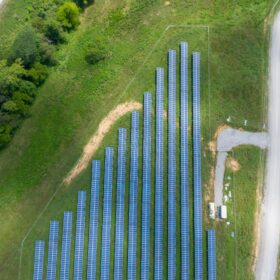The war on solar and renewable energy is real. If the public doesn’t care, we’ll lose
An opinion article issues a call to arms for the renewable energy industry to combat misinformation and aggressive federal deregulation through a grassroots “war of words.”
DOE removes “renewable” from National Renewable Energy Laboratory
The US Department of Energy (DoE) has renamed the National Renewable Energy Laboratory (NREL) in Colorado as the National Laboratory of the Rockies, a change it says aligns the institute’s mandate with the Trump administration’s applied energy priorities.
Quantifying uncertainty to produce more useful solar generation forecasts
Renewable energy firm PowerUQ advocates for the use of Uncertainty Quantification (UQ) in solar project analytics to combat the widespread issue of performance shortfalls. By incorporating a wider range of variables and providing probability scenarios like P50 and P90, UQ aims to make solar generation forecasts more useful and accurate over a project’s long lifespan.
Agrivoltaics provides benefits and possible pitfalls for solar developers
NREL study examines Massachusetts’ comprehensive approach to deploying solar on farmland.
NREL researchers address safety implications of next-generation battery technologies
Report says new evaluation methods, including AI, will help make future batteries safer.
Ford Lightning electric truck batteries power Maryland’s electric grid
Residential solar company Sunrun is operating the first vehicle-to-grid program in the United States, running a distributed energy power plant via coordinated energy dispatch from Ford Lightning truck owners.
NREL researchers warn of unexpectedly high UV-induced degradation in n-type solar modules
A research team from the U.S. National Renewable Energy Laboratory has analyzed n-type modules deployed in a 3 MW commercial PV project in an effort to assess the high degradation rate reported by the plant owner. The scientists found that ultraviolet-induced degradation (UVID) was a major factor affecting the facility’s performance.
Finetuning 2D Dion-Jacobson perovskites for photovoltaic applications
Canadian and U.S. researchers have investigated applying pressure to a 2D hybrid organic-inorganic perovskite to tune the optical and electronic properties to suit photovoltaic applications, light emitting diodes or other semiconductor devices.
National Laboratories releases energy procurement navigation tool
The National Renewable Energy Laboratory’s tool helps public and private energy buyers, like colleges, utilities, local governments, industrial buyers and more, explore off-site electricity options with cost-informed insights tailored to their specific goals.
Confused about PV connectors? Words matter
The National Renewable Energy Laboratory and Sandia National Labs have created a new nomenclature for PV connectors to reduce confusion amongst installers and developers, while improving deployment practices. They catalogued a sampling of twenty-five commercially available 4 mm connectors.















